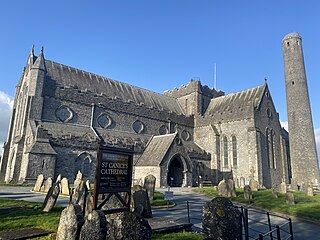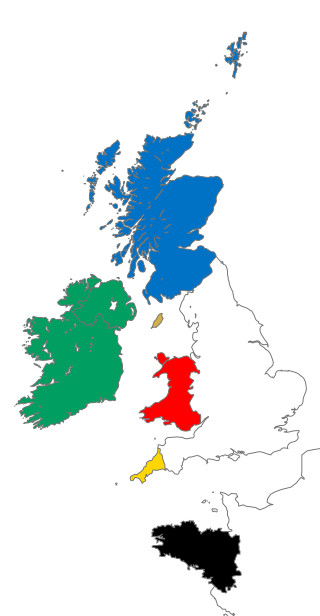Related Research Articles

A catechism is a summary or exposition of doctrine and serves as a learning introduction to the Sacraments traditionally used in catechesis, or Christian religious teaching of children and adult converts. Catechisms are doctrinal manuals – often in the form of questions followed by answers to be memorised – a format that has been used in non-religious or secular contexts as well. According to Norman DeWitt, the early Christians appropriated this practice from the Epicureans, a school whose founder Epicurus had instructed to keep summaries of the teachings for easy learning. The term catechumen refers to the designated recipient of the catechetical work or instruction. In the Catholic Church, catechumens are those who are preparing to receive the Sacrament of Baptism. Traditionally, they would be placed separately during Holy Mass from those who had been baptized, and would be dismissed from the liturgical assembly before the Profession of Faith and General Intercessions.

The Dean of St Patrick's Cathedral is the senior cleric of the Protestant St Patrick's Cathedral, Dublin, elected by the chapter of the cathedral. The office was created in 1219 or 1220, by one of several charters granted to the cathedral by Archbishop Henry de Loundres between 1218 and 1220.

The Diocese of Ossory is a Latin Church diocese of the Catholic Church in eastern Ireland. It is one of three suffragan dioceses in the ecclesiastical province of the Metropolitan Archbishop of Dublin. Currently, it is led by Niall Coll who was appointed on 28 October 2022 and will be ordained bishop on 22 January 2023.

The Dean of Christ Church Cathedral, Dublin is dean and head of the chapter of the Cathedral of the Holy Trinity, commonly called Christ Church Cathedral, which is the cathedral church of the United Diocese of Dublin and Glendalough in the Church of Ireland. The dean is appointed by the Church of Ireland Archbishop of Dublin. Aspects of the cathedral administration are overseen by the Cathedral Board, which the Dean chairs with both a regular and a casting vote.
David Rothe was a Roman Catholic Bishop of Ossory.
Events from the year 1585 in Ireland.

Early Modern Irish represented a transition between Middle Irish and Modern Irish. Its literary form, Classical Gaelic, was used in Ireland and Scotland from the 13th to the 18th century.

St Canice's Cathedral, also known as Kilkenny Cathedral, is a cathedral of the Church of Ireland in Kilkenny city, Ireland. It is in the ecclesiastical province of Dublin. Previously the cathedral of the Diocese of Ossory, it is now one of six cathedrals in the United Dioceses of Cashel and Ossory.
Mervyn Archdall was an Irish antiquary and clergyman of the Church of Ireland.
'George Browne was an English Augustinian who was appointed by Henry VIII of England to the vacant Episcopal see of Dublin. He became the king's main instrument in his desire to establish the state church in the Kingdom of Ireland. An iconoclast, during the Protestant Reformation he is noted for destroying the Bachal Isu, one of the symbols of authority of the Archbishop of Armagh.

William Newcome was an Englishman and cleric of the Church of Ireland who was appointed to the bishoprics of Dromore (1766–1775), Ossory (1775–1779), Waterford and Lismore (1779–1795), and lastly to the Primatial See of Armagh (1795–1800).
Nehemiah Donnellan was Archbishop of Tuam.
William Daniel D.D. was an Irish clergyman who served as the Church of Ireland Archbishop of Tuam from 1609 until his death in 1628.
The Reformation in Ireland was a movement for the reform of religious life and institutions that was introduced into Ireland by the English administration at the behest of King Henry VIII of England. His desire for an annulment of his marriage was known as the King's Great Matter. Ultimately Pope Clement VII refused the petition; consequently, in order to give legal effect to his wishes, it became necessary for the King to assert his lordship over the Catholic Church in his realm. In passing the Acts of Supremacy in 1534, the English Parliament confirmed the King's supremacy over the Church in the Kingdom of England. This challenge to Papal supremacy resulted in a breach with the Catholic Church. By 1541, the Irish Parliament had agreed to the change in status of the country from that of a Lordship to that of Kingdom of Ireland.

Edward Parry was Church of Ireland Bishop of Killaloe, County Clare, Ireland from 28 March 1647 until his death 20 July 1650.
Translations of the Bible into Irish were first printed and published in the 17th century: the New Testament, the Tiomna Nuadh, in 1602, the Old Testament, the Sean Thiomna, in 1685, and the entire Bible, the Biobla in 1690.
The Bible was translated into the Manx language, a Gaelic language related to Irish and Scots Gaelic, in the 17th and 18th centuries.
Andrew Sall (1624–1682) was an Irish Jesuit, later a convert to the Church of England.

The Catechism, or Education Obligatory to Every Christian of Mikalojus Daukša was the first Lithuanian-language book printed in the Grand Duchy of Lithuania. It was published by the press of Vilnius Jesuit Academy in 1595 with financial support of Bishop Merkelis Giedraitis. The catechism is not an original work but a translation. As such, the work holds little value in terms of content, but is extremely valuable to the study of the Lithuanian language due to its lexical richness. The sole surviving copy is kept at Vilnius University Library.

In addition to English, literature has been written in a wide variety of other languages in Britain, that is the United Kingdom, the Isle of Man and the Channel Islands. This includes literature in Scottish Gaelic, Welsh, Latin, Cornish, Anglo-Norman, Guernésiais, Jèrriais, Manx, and Irish. Literature in Anglo-Saxon is treated as English literature and literature in Scots as Scottish literature.
References
- 1 2 Williams, N. J. A. (2004). "Walsh, Nicholas (d. 1585)". Oxford Dictionary of National Biography . Oxford University Press. doi:10.1093/ref:odnb/28615 . Retrieved 19 February 2013.(subscription or UK public library membership required)
- ↑ Ware, Sir James, translated by Walter Harris (1736 edn). Writers of Ireland (Dublin: Ebenezer Rider): "Nicholas Walsh, Bishop of Ossory, writ Learned Sermons in Latin, yet extant in his own Hand Writing. He also attempted the translation of the New Testament, into Irish about the Year 1573, but his Design was Prevented by a horrid Murther committed on him in 1585." (Chap. XII).